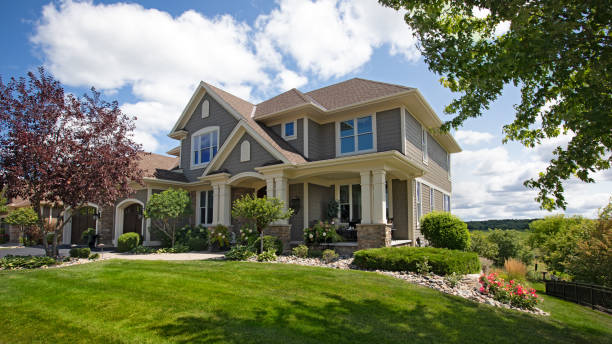Two methods may handle the control of real estate. One option is to acquire possession of the property for life, i.e., assume ownership of the house. This comes with its advantages since it allows capital appreciation and eliminates the requirement to pay rentals in the near future. However, you can pay rent and then use the property whenever they want. Which of these options makes more sense from a financial perspective is what’s included in the rent or—buying decision. This article outlines the details of the rent and buy—purchase decision.
Compare Annual Expenses
The average person has a tendency to see purchasing a house as a personal decision. Also, there’s the common wisdom that claims that buying a home is always superior to renting. But with regard to highly educated real estate investment or any person who is worried about the way their money is used, the traditional advice needs to be more accurate.
However, it is advisable to consider whether it’s better to purchase a home or if renting a home would make more sense financially. The trick is to evaluate the expenses for each year. Pay attention to the phrase “expenses.” There is no comparison between cash flows. Instead, we’re looking at costs.
If we decide to buy a house and we are able to get the obligation of paying a mortgage. The mortgage is comprised of two elements. One component is interest, and the other one is principle. It is simply an expense. It is simply money that has left your pockets today and cash you won’t have to look at in the near future. Therefore, this is the sum we’ll use in our calculations. In contrast, the primary part of the mortgage payment includes your saving. It’s like taking money from one pocket and placing it in another bag. Because this can be saved, do not consider this in our calculations.
Therefore, the costs due to the house comprise interest (after taking out the tax shield) and property taxes. Maintenance and insurance. It is how much money is used up during the time.
However, the rent-related expenses are pretty simple and straightforward. In the beginning, there may be a one-time cost of making a payment to the property owner. But it isn’t an expense; it’s an interest-free loan because you will get the same cash back after moving out of the property. Beyond that, there is also a monthly rent to be paid. Many people also consider the down payment cost that must be paid to buy the house. That means if you did not purchase an apartment, you would earn some amount of interest on the down payment. This amount must be deducted from the rent you pay each month.
Therefore, the basic idea of the rent-vs. The purchase decision is to evaluate the annual costs incurred due to purchasing or renting a house.
Future Annual Expenses
Additionally, it must be recognized that neither buying nor renting is a one-time decision. These are decisions that require commitment and must be carried out over a time of time. So, when a comparison of annual numbers is a good option, it is essential to make sure that they don’t look at data only for the present year. Instead, projections of cash flow and expenses will be looking at a number of years in the near future.
This is in which the rental vs. buy decision becomes more difficult. This is due to the fact that the decision is very dependent on the amount of capital appreciation we anticipate in the future. If we modify the capital appreciation by a single percent, it could change your net present value by a massive amount, like $50,000. To make it even more complicated to make it more complicated, predicting the future value of real estate is incredibly difficult. Thus, one must be cautious of the assumptions for the future that are built into the model because they could make the model upside down.
Riskiness
Rent and buy. The purchase decision is dependent on the risk-taking capacity of a person. Some individuals are confident in the risks mortgages carry. A mortgage can increase the risk due to the fact that interest has to be paid, and the buyer is extremely sensitive to price fluctuations in the marketplace. Therefore, the value of an individual is likely to change drastically in the event of a mortgage since mortgages are an extremely leveraged investment.
More risk-averse people prefer renting. This is due to the fact that rents don’t fluctuate as rapidly as prices for property do. However, if rents fluctuate dramatically in a particular neighborhood, the homeowner is able to relocate to a different area or even another city, should it be necessary!
Stability in comparison to. Flexibility
When we invest in real estate, it’s as if we throw anchors in a specific spot. Our lives become stable. The majority of homeowners decorate their homes according to their tastes, and if they own the property, they can decorate it. Additionally, renting means shifting houses in a regular manner. A house purchase cuts out the need for this and ensures security.
However, renting allows people to try different areas and different sizes of apartments at various prices to determine the one that best fits their needs. Those whose job requires moving frequently would also be better off renting.
To summarize, the buy vs. rent analysis is partly emotional as well as financial. The financial aspect of the study is hard to understand due to the assumptions for the future. However, one needs to be aware of the amount in risk and the flexibility they want before deciding.
